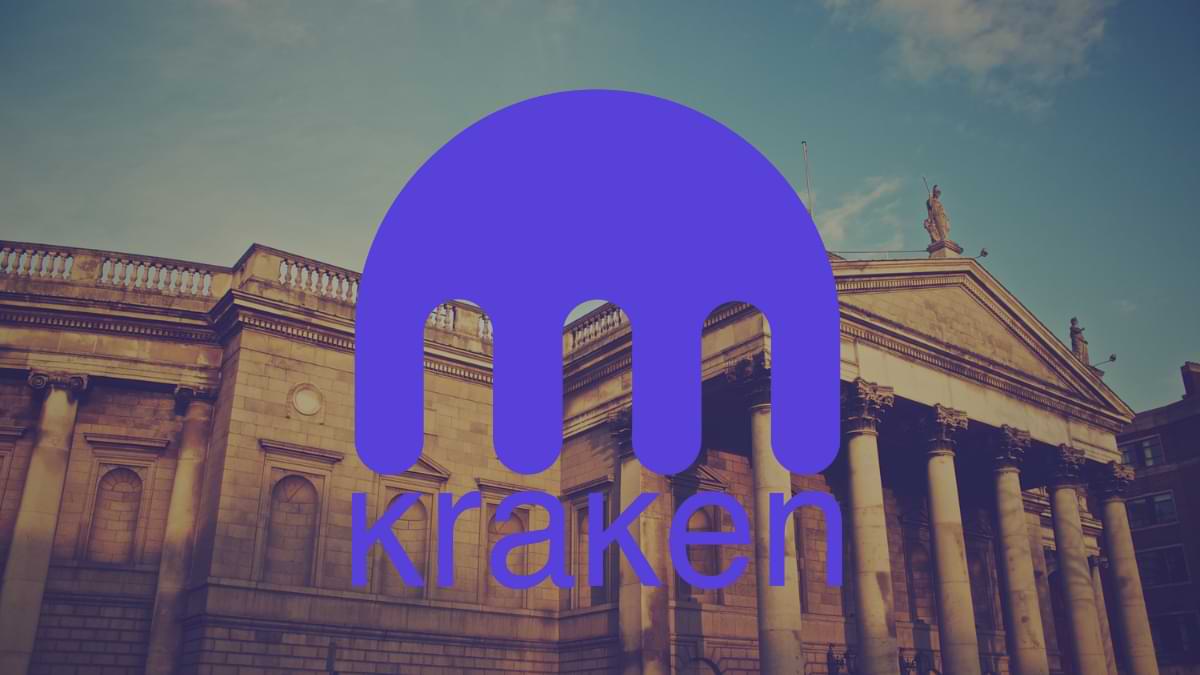Natasha Dean
Editor

Kraken, one of the world’s leading cryptocurrency exchanges, has announced its plans to launch its own bank. The move is part of Kraken’s broader strategy to expand its range of financial services and become a one-stop-shop for crypto enthusiasts.
According to the company, the new bank, which will be headquartered in Wyoming, will provide a range of financial services to Kraken’s customers, including deposit accounts, debit cards, and wire transfers. Kraken’s banking operations will be conducted through its subsidiary, Kraken Financial, which was granted a Special Purpose Depository Institution (SPDI) charter by the Wyoming State Banking Board last year.
Kraken’s decision to launch its own bank comes as the cryptocurrency industry continues to grow and mature. As more people enter the market, there is a growing need for reliable and secure financial services that cater specifically to the needs of crypto investors. By launching its own bank, Kraken hopes to fill this gap in the market and provide its customers with the financial tools they need to manage their crypto assets more efficiently.
Jesse Powell, the CEO of Kraken, said in a statement, “We’re thrilled to launch Kraken Bank and offer our clients a complete suite of financial services that seamlessly integrate with their Kraken account. Wyoming is a pioneer in the regulation of digital assets, and we’re proud to be one of the first companies to receive a banking charter under the Wyoming SPDI law.”
Wyoming has become something of a crypto-friendly haven in recent years, thanks to its progressive regulatory approach to digital assets. The state was the first in the US to recognize cryptocurrency as a form of money and has since passed a number of other laws aimed at creating a favorable environment for crypto businesses.
Kraken’s new bank is expected to open for business later this year, subject to regulatory approval. The company has said that it will initially focus on serving US-based clients, with plans to expand to other markets in the future.
Kraken’s decision to launch its own bank is significant for several reasons. Firstly, it gives the exchange greater control over its financial infrastructure, which is crucial given the volatile and rapidly evolving nature of the cryptocurrency industry. By operating its own bank, Kraken will be able to ensure that its customers’ assets are held in a secure and reliable manner, and that they have access to a full range of financial services to manage their crypto assets more effectively.
Secondly, the launch of Kraken Bank is likely to help the exchange compete more effectively with traditional banks and financial institutions. By offering a comprehensive suite of financial services, Kraken will be able to provide its customers with a more seamless and integrated user experience, which could attract more users to its platform.
Finally, the launch of Kraken Bank is a sign of the growing mainstream acceptance of cryptocurrencies. As more traditional financial institutions begin to embrace digital assets, the launch of a crypto-focused bank by a major exchange like Kraken is a clear indication that cryptocurrencies are becoming increasingly mainstream.
The launch of Kraken Bank is just the latest in a string of moves by the exchange to expand its range of financial services. Last year, Kraken acquired Crypto Facilities, a UK-based cryptocurrency derivatives trading platform, and launched Kraken Intelligence, a market analysis and research unit. The company has also been actively expanding its range of trading pairs and launching new products, such as its futures trading platform.
Kraken’s push into banking is part of a broader trend in the crypto industry, with a growing number of exchanges and startups looking to offer more comprehensive financial services to their customers. With the industry continuing to grow at a rapid pace, it seems likely that we will see more companies follow Kraken’s lead and launch their own banks in the coming years.
Kraken’s move into banking is also likely to have wider implications for the crypto industry as a whole. The launch of a crypto-focused bank could encourage other exchanges and startups to follow suit and launch their own financial institutions, which could help to accelerate the adoption of cryptocurrencies and blockchain technology.
However, the launch of Kraken Bank is not without its challenges. One of the biggest hurdles that the exchange will face is regulatory compliance. As a bank, Kraken will be subject to a range of regulations and compliance requirements, which could be complex and time-consuming to navigate. However, the fact that Kraken has already been granted a SPDI charter by the Wyoming State Banking Board is a positive sign that the exchange is well-positioned to meet these regulatory challenges.
The launch of Kraken Bank is also a positive sign of the growing mainstream acceptance of cryptocurrencies, as more traditional financial institutions begin to embrace digital assets. As the crypto industry continues to grow and mature, we are likely to see more companies follow Kraken’s lead and launch their own financial institutions, which could help to accelerate the adoption of cryptocurrencies and blockchain technology.
While the regulatory challenges associated with launching a bank cannot be ignored, Kraken’s SPDI charter from the Wyoming State Banking Board is a positive sign that the exchange is well-positioned to navigate these challenges. As more companies begin to embrace digital assets, we can expect to see even more innovative and exciting developments in the years to come.
In conclusion, Kraken’s decision to launch its own bank is a significant development for the cryptocurrency industry and a clear indication that cryptocurrencies are becoming increasingly mainstream. By providing its customers with a comprehensive suite of financial services, Kraken will be able to offer a more seamless and integrated user experience, which could help to attract more users to its platform. Furthermore, the launch of Kraken Bank is a sign of the growing mainstream acceptance of cryptocurrencies, and could encourage more traditional financial institutions to embrace digital assets in the future.